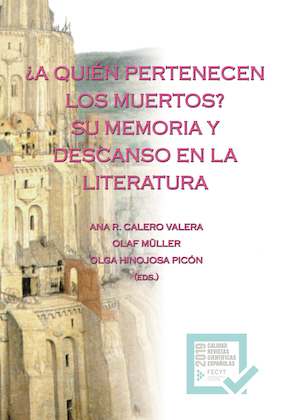Ghostly Memories of Afro-Europeanness after the Great War in Esi Edugyan’s Half Blood Blues
DOI:
https://doi.org/10.7203/qdfed.24.16330Keywords:
Afro-Europeanness, racialization, hauntology, memory, exclusion Abstract
Abstract
African Canadian author Esi Edugyan’s second novel Half Blood Blues, published in 2011, undertakes an excavation of the trajectories of different types of blackness across the convoluted history of Europe after the Great War and the Nazi regime by focusing on the tragic whereabouts of Afro-European denizen Hiero Falk and his jazz band. The story exemplifies the complex perception of the black subject’s European identity and its resilient attitude by unpacking their ghostly memories and the exclusionary racial policies in a continent caught up into different wars. Thus, using as a theoretical framework the politics of cultural memory alongside the aesthetics of the (postcolonial) gothic and its intersection with the workings of racialization this essay focuses on Edugyan’s retrieval of Afro-European memory haunted by a context of racial supremacy and erasure to outline the much needed dialogue between European history and its colonial endeavor.
 Downloads
Downloads
Downloads
Published
How to Cite
-
Abstract629
-
PDF (Español)534
Issue
Section
License
 Este obra está bajo una licencia de Creative Commons Reconocimiento-NoComercial-SinObraDerivada 4.0 Internacional.
Este obra está bajo una licencia de Creative Commons Reconocimiento-NoComercial-SinObraDerivada 4.0 Internacional.
Authors who publish with this journal agree to the following terms:
- Authors retain copyright and grant the journal right of first publication with the work simultaneously licensed under a Creative Commons Attribution License that allows others to share the work with an acknowledgement of the work's authorship and initial publication in this journal.
- Authors are able to enter into separate, additional contractual arrangements for the non-exclusive distribution of the journal's published version of the work (e.g., post it to an institutional repository or publish it in a book), with an acknowledgement of its initial publication in this journal.
- Authors are permitted and encouraged to post their work online (e.g., in institutional repositories or on their website) prior to and during the submission process, as it can lead to productive exchanges, as well as earlier and greater citation of published work (See The Effect of Open Access).




